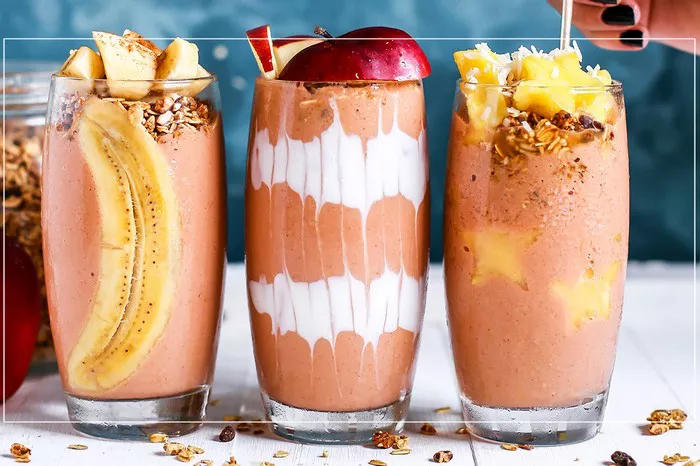As teenagers navigate the whirlwind of academic responsibilities, extracurricular activities, and social engagements, maintaining proper nutrition is crucial for supporting their growth, development, and overall well-being. Protein shakes have become a popular dietary supplement for teenagers looking to fuel their active lifestyles and support muscle growth and recovery. In this comprehensive article, we explore the considerations for choosing the best protein shake for teenagers, including ingredients, nutritional content, safety, and effectiveness.
Understanding Teen Nutrition
Teenagers have unique nutritional needs due to their rapid growth and development during adolescence. Adequate intake of essential nutrients, including protein, is vital for supporting muscle development, bone health, immune function, and cognitive performance. While whole foods should form the foundation of their diet, protein shakes can serve as a convenient and portable option to supplement their nutrition, especially for those with busy schedules or increased energy demands.
Protein Requirements
The Recommended Dietary Allowance (RDA) for protein varies depending on age, sex, and activity level. For teenagers aged 14-18, the RDA for protein is approximately 46-52 grams per day for females and 52-64 grams per day for males. However, active teenagers or those involved in sports may have higher protein needs to support muscle repair and growth.
Choosing the Best Protein Shake for Teenagers
When selecting a protein shake for a teenager, several factors should be considered to ensure that it meets their nutritional needs and aligns with their health and fitness goals:
1. Protein Source
Look for protein shakes that contain high-quality protein sources, such as whey protein, casein protein, or plant-based proteins like pea protein, soy protein, or rice protein. Whey protein, in particular, is highly regarded for its complete amino acid profile and rapid absorption, making it an ideal choice for post-workout recovery. However, individuals with lactose intolerance or dairy allergies may opt for plant-based protein sources.
2. Nutritional Content
Check the nutritional label to ensure that the protein shake provides a balanced combination of protein, carbohydrates, and fats. Ideally, it should contain a moderate amount of carbohydrates to replenish glycogen stores and provide energy, as well as healthy fats to support overall health and satiety. Additionally, look for protein shakes fortified with vitamins and minerals to further enhance their nutritional value.
3. Added Sugars and Artificial Ingredients
Avoid protein shakes that are high in added sugars, artificial sweeteners, flavors, or preservatives. Excessive consumption of added sugars can contribute to weight gain, insulin resistance, and other health issues, while artificial additives may have adverse effects on overall health and well-being. Opt for protein shakes with minimal added sugars and natural flavorings whenever possible.
4. Allergen Considerations
Consider any food allergies or sensitivities when selecting a protein shake for a teenager. Many protein shakes contain common allergens such as milk, soy, wheat, or nuts. Choose products labeled as “dairy-free,” “gluten-free,” or “soy-free” if necessary, and always read the ingredient list carefully to avoid potential allergens.
5. Safety and Quality
Choose protein shakes from reputable brands that undergo rigorous testing for safety, purity, and quality. Look for products that are certified by third-party organizations such as NSF International, Informed-Choice, or the USP Verified Mark, which provide assurance that the product meets high standards for safety and efficacy. Additionally, check for any recalls or safety alerts associated with the brand or product.
6. Taste and Texture
While nutritional content is paramount, taste and texture also play a significant role in the acceptability of protein shakes, especially for teenagers. Encourage teens to sample different flavors and brands to find one that they enjoy and find palatable. Experimenting with mixing techniques, such as blending with fruits, vegetables, or nut butters, can also enhance the taste and texture of protein shakes.
Potential Benefits of Protein Shakes for Teenagers
When incorporated into a balanced diet and healthy lifestyle, protein shakes can offer several potential benefits for teenagers:
Muscle Growth and Repair
Protein is essential for muscle growth, repair, and recovery, especially after exercise or physical activity. Consuming a protein shake post-workout can help replenish glycogen stores and provide amino acids to support muscle repair and growth.
Convenience and Portability
Protein shakes are convenient and portable, making them an ideal option for teenagers with busy schedules or on-the-go lifestyles. They can be easily prepared and consumed as a quick and nutritious snack or meal replacement when whole foods are not readily available.
Weight Management
Protein shakes can help support weight management goals by promoting satiety and reducing hunger cravings. Consuming a protein-rich snack or meal replacement can help prevent overeating and support healthy eating habits.
Nutritional Support
Protein shakes can provide additional nutritional support, particularly for teenagers with increased energy demands or nutrient deficiencies. Fortified protein shakes can help ensure adequate intake of essential vitamins, minerals, and micronutrients necessary for growth and development.
Hydration
Some protein shakes are formulated with added electrolytes or hydration blends to support hydration and replenish electrolyte levels, especially after intense exercise or physical activity. Encouraging teenagers to stay hydrated is essential for overall health and well-being.
Conclusion: Promoting Teen Health and Fitness
Choosing the best protein shake for a teenager involves considering factors such as protein source, nutritional content, allergen considerations, safety, taste, and texture. By selecting high-quality protein shakes that meet their nutritional needs and preferences, teenagers can support their overall health, fitness, and well-being. However, it’s essential to emphasize that protein shakes should complement a balanced diet rich in whole foods, including lean proteins, fruits, vegetables, whole grains, and healthy fats. Encourage teenagers to consult with a healthcare professional or registered dietitian for personalized nutrition recommendations and guidance on incorporating protein shakes into their diet. With proper nutrition, regular physical activity, and healthy lifestyle habits, teenagers can thrive and reach their full potential during this critical stage of development.
[inline_related_posts title=”You Might Be Interested In” title_align=”left” style=”list” number=”6″ align=”none” ids=”7646,7643,7394″ by=”categories” orderby=”rand” order=”DESC” hide_thumb=”no” thumb_right=”no” views=”no” date=”yes” grid_columns=”2″ post_type=”” tax=””]
































